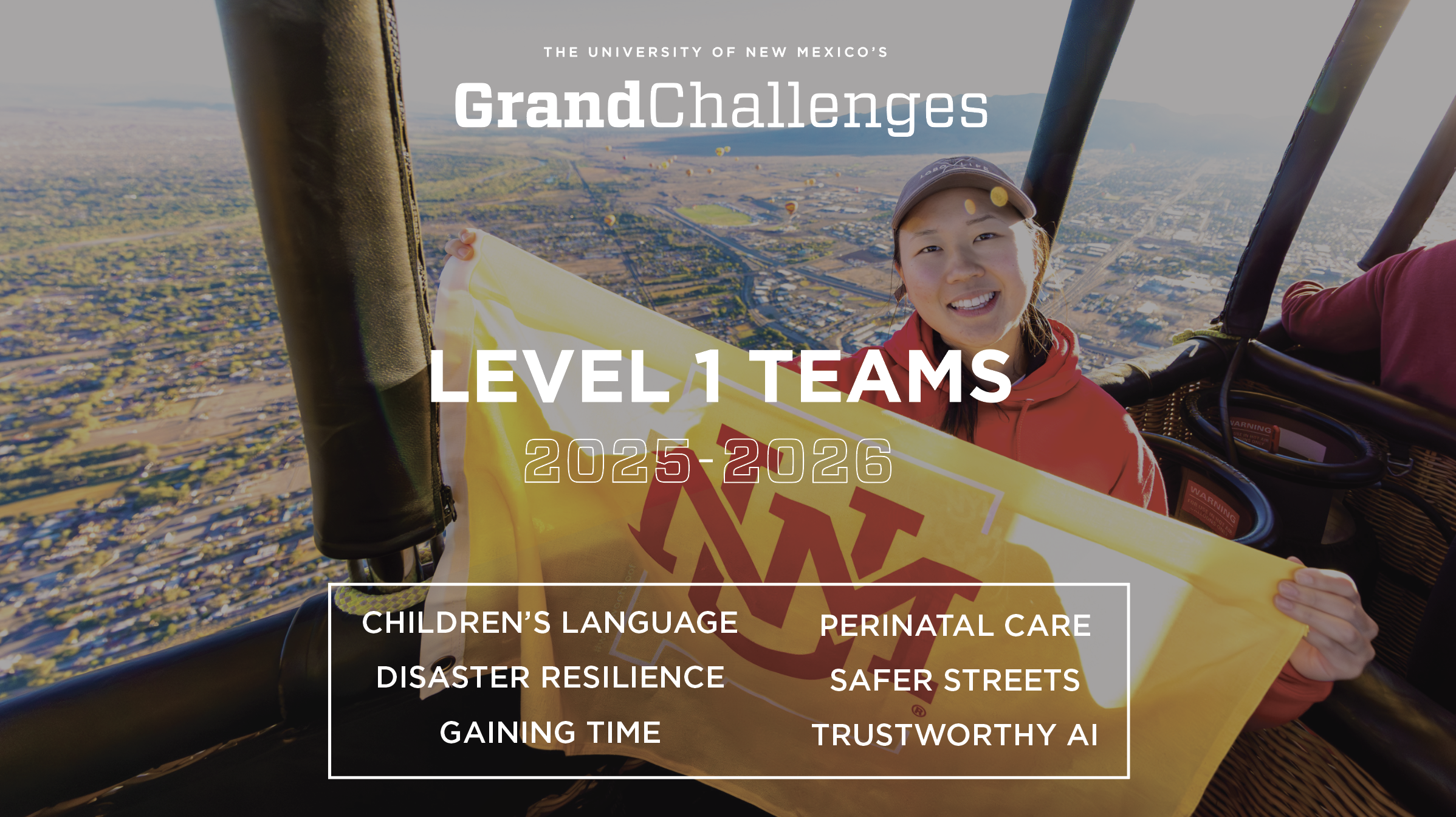2025 Level 1 teams
The University of New Mexico’s Grand Challenges program introduces six new teams!
The teams, selected through a competitive application process, represent the breadth of research and innovation at UNM, with main, health sciences, and branch campuses all represented. Supporting UNM’s commitment to serve the people of New Mexico, the newly formed and growing interdisciplinary research teams will address topics that are of the utmost importance to our state. The Level 1 program will provide a year of team building and strategic planning support. Team abstracts and conveners are listed below. For more information or to connect with teams, please contact Grand Challenges.

Learn more about the new teams by clicking the links below:
